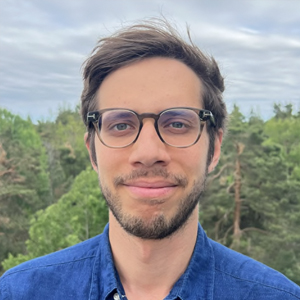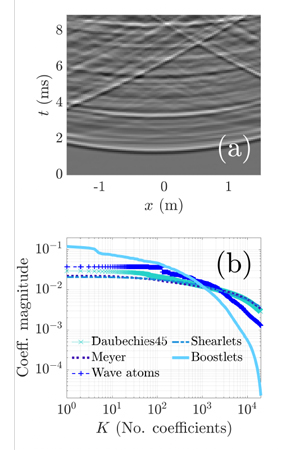Elias Zea, Assistant Professor in Engineering Acoustics at KTH
Elias Zea was appointed Assistant Professor in March 2023, working for Vehicle Engineering and Technical Acoustics.
Elias, what are your research area, research interests, research methods, application area?

My main research lies at the intersection of acoustics and applied mathematics, emphasizing physical models for efficient measurement and processing of wave fields in space-time. I am interested in reconstructing vibroacoustic quantities, e.g., sound absorption and resonance modes, from noisy, limited data using tools from harmonic analysis and deep learning. I am also involved in multi-disciplinary projects on sound propagation in biofluid mechanics and sustainable aviation.
What do you think are the large research challenges in your research area and why?
Measuring and modeling acoustic data is challenging because wavelengths span from millimeters to meters. Developing tools to capture and analyze such a multi-scale spectrum efficiently has profound implications for noise mapping and control solutions in cities and homes, as well as digital and industrial applications, including virtual/augmented reality and immersive acoustic environments.
If you are looking for some research collaborator(s), what competence are you looking for?
I am looking for collaborators working on ultrasonic signal processing.

Can you tell us more about one of your research results and why you picked it?
In collaboration with M. Laudato and J. Andén at KTH, we have developed a multi-scale method (boostlets) to compress acoustic fields measured in space-time, such as the one shown in Figure (a). The faster coefficient decay in Figure (b) shows boostlets outperform benchmark methods such as wavelets. This empirical result has promising practical implications, e.g., super-resolution and reduction of sensors and data storage costs, and it can extend to imaging applications in medical ultrasound, seismology, and oceanography.
Lastly, what do you like with Sweden, Stockholm and KTH?
What I like is the level of consciousness and awareness of the society. Stockholm has been a second home for me. It is a lively city knitted with many parks, forests, and water. What I like the most about KTH is the focus on creating inclusive environments and forming engineers to address societal challenges.
Like to follow Elias Zeas work – Follow his LinkedIn or ResearchGate for project updates, new preprints, and published papers.
